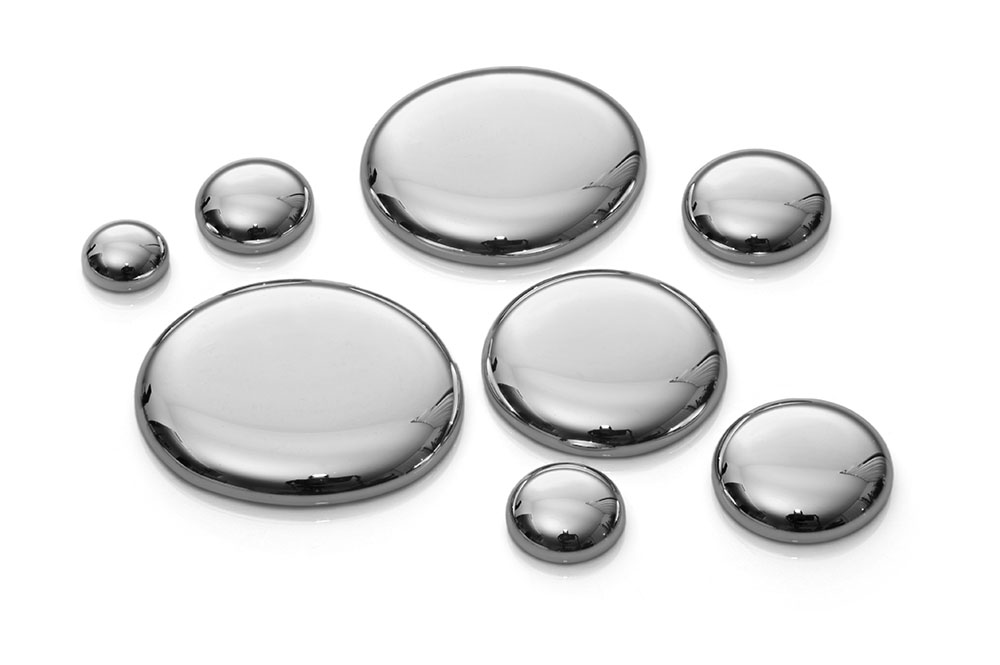What To Do When Mercury Spills At Home

CONTENTS
- What is mercury?
- What are the health risks of mercury?
- What products contain mercury?
- How to dispose of mercury items
- What to do when mercury spills at home
- Get in touch
The UK has implemented stricter regulations regarding the presence of mercury in households and workplaces, but there is always the possibility of a spill occurring. If there is a mercury spillage at home due to a broken object, you must contact mercury clean-up services to protect yourself.
Here at ICE Cleaning, we can be on-site within hours to effectively contain and clean a mercury spill. Our mercury spill cleaning services use specialist equipment and solutions to safely remove the mercury and make your home safe again.
Read on to learn more about what to do when mercury spills at home and how you can dispose of mercury safely.
What is mercury?
Mercury is a naturally occurring element. Due to human activity such as mining, mercury continues to cycle through the environment and into soil, water, and air. There are three types of mercury:
Elemental mercury
This is the most well-known form of mercury. Also known as "quicksilver", it is a silvery liquid that evaporates when spilt at room temperature. Elemental mercury was present in the mass production of thermometers, which led to its ban in 2009.
Inorganic mercury
Humans use this type of mercury in industrial processes to create compounds and salts. As recently as 2022, traces of inorganic mercury were found in skin-lightening and anti-ageing creams.
Organic mercury
Also known as methylmercury, this type of mercury occurs naturally in the food chain. Most remnants are in shellfish and large predatory fish, which humans consume at small levels.
What are the health risks of mercury?
Most exposures are either occupational or general. The most common way to encounter forms of mercury is through workplace incidents in factories, recycling facilities, and warehouses.
General encounters happen when humans consume mercury through types of fish and contaminated vegetation. Chronic exposure may result in mercury poisoning and lead to death. Through either ingesting, touching, or inhaling mercury, you might experience the following:
Methylmercury poisoning
- Weak muscles
- Slurred speech
- Deafened hearing
- Lack of balance
- Lack of peripheral vision
Elemental mercury
- Headaches
- Tremors and twitching
- Difficulty sleeping
- Weak muscles
- Breathing difficulties
- Kidney damage
- Death
Inorganic mercury
- Skin rashes and irritation
- Weak muscles
- Memory problems
- Breathing difficulties
- Mental health issues
- Mood swings
If you accidentally touch mercury, wash your skin thoroughly for 10 to 15 minutes with warm, soapy water. Any soiled clothing should be removed and discarded immediately.
Inhaling or ingesting any amount of mercury will require you to contact 111 for medical advice. However, if you start to display mercury poisoning symptoms, call 999 or go to A&E.
What products contain mercury?
Although UK law has heavily restricted the use of mercury, it is still used in industrial processes and electronic products.
Pre-owned items from a charity or antique store may contain mercury without you realising it, so be vigilant when purchasing electronics or measuring products. Some products still use mercury in their electrical processes such as:
- Fluorescent light bulbs
- Tilt switches
- Backlights (found in television sets)
- Circuit boards
- Mercury batteries
- UV curing lamps
Elemental mercury is still used in electrical items as it is naturally occurring and has indestructible properties. It is an incredibly conductive material and hard to replace with other alternatives.
The Minamata Convention on Mercury is making great strides with the UN to phase out mercury's presence in products like fluorescent lightbulbs and electrical measuring devices.
How to dispose of mercury items
If you suspect that any products you own contain mercury, it is imperative that you dispose of them properly. Do not discard the products in general recycling as this puts workers at risk of mercury exposure.
You should read your local council's advice on mercury disposal and hazardous waste. If you are unsure of where to find that information, you can find it here:
What to do when mercury spills at home
If you spill mercury at home through a broken product, you must immediately evacuate vulnerable individuals like children and elderly people, and any pets.
Open all doors and windows that lead to the outside, and close doors that access other parts of the home to reduce the spread of mercury vapours. If you have extractor fans in your house, refrain from turning them on as this may move the toxic vapours to other areas of your property.
Do not try to clean the mercury up yourself as spilt mercury becomes an invisible, odourless vapour that can cause serious harm when inhaled. If it gets on your skin, it may cause rashes and dermatitis. Leave the area immediately and contact a mercury spill cleaning company.
Get in touch
We can decontaminate and purify the air in your home with our mercury spillage cleaning services. Our expert technicians will test the air before and after the job to ensure it is safe to breathe again. They can also assist with other hazardous waste disposal.
If you have concerns about mercury products or spillage in your home, you can talk to our excellent service team at 0208 066 0360 or enquiries@icecleaning.co.uk. Our cleaners are always available nationwide, including bank holidays, 24/7.

Speak with me today,
I’m here to help
By asking you a few questions either via phone or email I can immediately provide a realistic estimation of the cost.
You’re in good company. We’ve cleaned for the following commercial clients… View all

Why choose us?
- Cater to a wide variety of cleaning situations
- Nationwide coverage, available 24/7
- Cater to commercial and domestic clients
- Free survey provided prior to quotation
- Emergency response team
- Offer a bespoke service designed to suit all your needs
- All technicians hold professional health and safety qualifications, including BICSc, IOSH, Dewpoint Professional & Safe Contractor
We’re fully accredited
We place best practise, professional expertise and health and safety at the core of our business. We’re fully compliant with all legal obligations. You can view a list of our accreditations below, or visit our Health & Safety page for more information.











-RGB-small.1707319151.jpg)




















